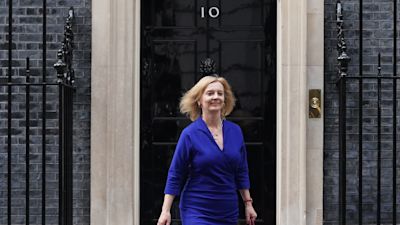Insight
Who will pay for Liz Truss’s £100 billion energy bail-out?

Everyone is talking about Liz Truss’s supposed £100 billion scheme to limit energy price rises as though it were a free lunch. It isn’t. Someone has to pay for it.
The original scheme proposed by suppliers was for a massive government loan to them, with the cost of holding bills at current levels paid back by all household customers through our bills over ten years or so.
It would be a “pay later” scheme. It would mean proportionately higher bills for all of us for a decade. Politically that is highly risky.
Remember the trouble that Sunak got into when he announced that a £400 discount to bills would have to be repaid through our bills?
If we all had to repay £4,000 or more over coming years, that would be quite an albatross around Truss’s neck.
So maybe Truss is planning a £100bn grant to keep energy prices down, financed initially by government borrowing, though by definition that would mean the bill is one for taxpayers.
In a Financial Times article, the expected new chancellor Kwasi Kwarteng says the time is ripe for “fiscal loosening”, which implies Truss is minded to take the route of putting the bill on the national debt, with the hope - in Kwarteng’s words - that the underlying growth rate of the economy can be increased to make the extra debt less burdensome, and some repaid by shrinking the public sector.
That would be his and Truss’s promised break with Treasury orthodoxy.
It has much in common with Corbynomics.
But the simple big point is this: someone will pick up the bill for putting a cap on household energy bills; that someone is you and me. The choice for Truss is whether she charges us through higher energy bills on years to come, or through cuts to other public services (since she has ruled out tax rises).
One more thing. This scheme would and could do nothing to help small business customers, because they operate in a much more competitive market that has multiple price points.
I am told they will be helped, probably through grants and subsidized loans.
The help they received during the Covid pandemic may be something of a guide.
But although preventing the looming collapse of many thousands of small businesses is a priority, in the recession that has probably already started the challenge will be significant.
Want a quick and expert briefing on the biggest news stories? Listen to our latest podcasts to find out What You Need To Know...